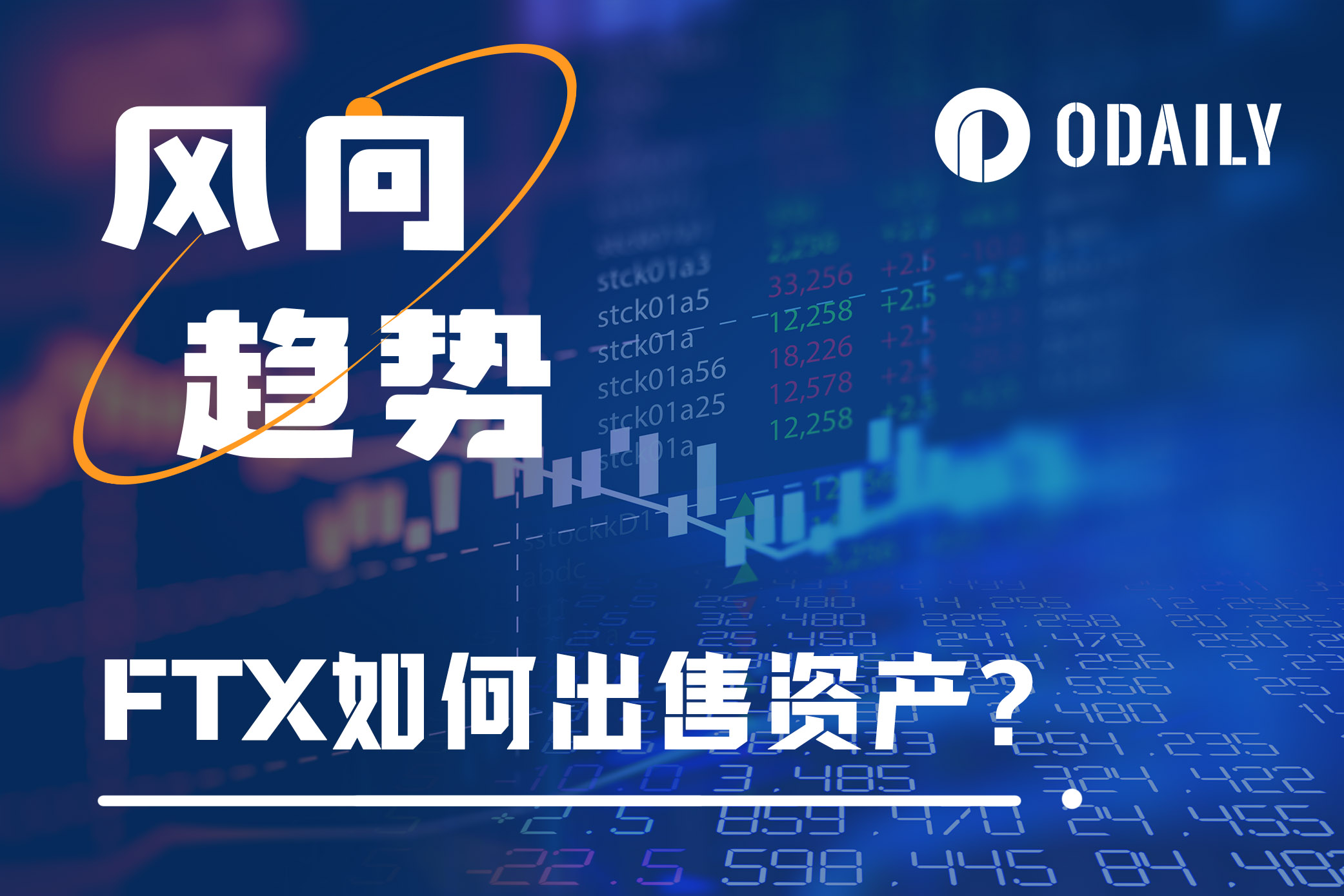How does FTX sell assets during restructuring? What impact will it have on the market?
Original - Odaily
Author - jk

Since FTX was taken over by the bankruptcy team this year, FTX is taking a series of measures to handle its bankruptcy and reorganization process, including selling assets and formulating a reorganization plan aimed at recovering as much money as possible for creditors and stabilizing its business operations.
In one week, FTX exchange made two important developments in its complex bankruptcy proceedings.
On December 7, local time in the United States, the Official Committee of FTX Unsecured Creditors disclosed a reply letter sent to the FTX 2.0 Customer Ad Hoc Committee on December 4. In its letter, the official committee stated that the restructuring plan currently proposed strikes the right balance in balancing the competing interests of stakeholders and safeguarding the interests of all unsecured creditors.A revised reorganization plan and disclosure statement are expected to be filed with the bankruptcy court in mid-December,to provide more details.
At the same time, the Official Committee is also evaluating reasonable alternatives that may improve the terms of the plan and is conducting ongoing discussions regarding potential acquisitions, recapitalizations or other transactions. While the official committee is currently restricted from disclosing details due to confidentiality obligations, a number of concepts, including equity tokens involving debt recovery, have been considered. The official committee also welcomes continued cooperation with the FTX 2.0 Customer Ad Hoc Committee in the coming months to work together to complete these bankruptcy cases.
On the other hand, on November 30, FTX also received approval from the bankruptcy court to begin selling its shares in the digital trust managed by Grayscale. This is part of FTX’s plan to raise funds to pay down billions of dollars in debt. According to court documents, FTX plans to sell the assets in a way that maximizes value while trying to avoid disrupting the digital investment market.
FTX’s investment in Grayscale covers a variety of digital currencies, and its buyers do not directly hold the actual currency, but instead obtain shares in a trust formed and managed by Grayscale.FTXs stake in the trust was worth about $744 million last month, it stated in court filings.
So what exactly did FTX do with this asset? What steps are needed to change from Grayscales shares to creditors rights? In other words, how exactly does FTX realize its debt repayment? Odaily reviewed the detailed steps in court documents.
Steps for Court Document Disclosure
According to court documents filed, FTX Trading Ltd. and its related debtors and debt holders are implementing a series of procedures to sell or transfer the trust assets they hold. The goal of these proceedings is to ensure that the value of the assets is maximized and that the proceeds are distributed to creditors in a fair and appropriate manner, while maintaining efficient administration of the trust assets.
Court documents read that the debtors are authorized, but not directed, to use their reasonable business judgment to conduct the sale of the trust assets in accordance with the following sales procedures:
Choice of Investment Advisor:FTX will market and sell the trust assets through a court-approved investment adviser.This means that FTX will enter into an investment services agreement with this advisor, who will be responsible for handling all matters related to the sale of the trust assets.
Establishment of Pricing Committee: FTX will establish a Pricing Committee composed of its representatives, committee representatives and ad hoc committee representatives. This committee is responsible for reviewing and determining asset pricing and sales strategies in coordination with the Investment Advisor.
Pricing Restrictions: Sales of certain trust assets will be subject to pricing and sales restrictions. These restrictions will be specified in the Investment Services Agreement and agreed in advance in writing with FTX, the Investment Adviser, the Committee and the Ad Hoc Committee. In other words, this ensures that assets will not be arbitrarily priced, thereby avoiding the problem of too large a difference between market value and pricing value.
Sales Method: FTX will sell the Trust Assets through investment advisors, over-the-counter (OTC), or through exchanges.
Reporting Requirements: All sales of trust assets will be recorded and included in monthly reports to FTX, the Commission and the Ad Hoc Committee.
Related Party Transactions Prohibited: An investment adviser may not select any of its related parties as a counterparty for trust asset transactions.
Bid Requirements: For over-the-counter sales, the Investment Adviser is required to obtain at least two bids from different counterparties before executing any such sale.
Sales Execution: FTX may sell trust assets through an investment adviser in one or more transactions to one or more buyers.
Brokerage Transaction Execution: All sales of trust assets shall be made through or with a registered securities broker-dealer or other person exempt from registration.
Who might the interested parties be?
And according to Coindesk inReports from August this yearCome and see,This investment adviser, which is the role played by investment banks within traditional finance, may be Galaxy in this incident.
According to an Augustcourt documentsmentioned in: Galaxy Asset Management has extensive experience in digital asset management and trading, including experience related to the types of transactions proposed and investment objectives. The reference here is that it was founded by Mike Novogratz Galaxy Asset Management, Inc. is an investment adviser approved by the U.S. Securities and Exchange Commission.
Another part of the company, better known as Galaxy Digital, announced at the time of its bankruptcy that it was implicated in tens of millions of dollars by FTX, with documents detailing conflicts of interest that would ensure the asset manager acted in FTXs best interests. program.If Galaxy is really the investment advisor for this grayscale asset sale, then according to the above steps, Galaxy Digital cannot participate in the grayscale asset sale as a counterparty.
Some new developments reveal more details about its asset sales process. For example, the report stated that “FTX/Alameda related address transferred $2.8 million GMT to Wintermute,as well asFTX/Alameda address transferred 17,100 SOL to Wintermute”. These transactions suggest that market makers like Wintermute may have acted as counterparties or broker-dealers in FTX’s asset sales.
As you can see, the sales steps given in the document are still very professional. Investment advisors and voluntary guidance are provided to allow them to make decisions that are best for creditors based on market conditions and the characteristics of the assets. This approach speeds up the decision-making process and increases the efficiency of sales, while also ensuring transparency and traceability of the process.
However, it also poses risk management challenges: conflicts of interest may exist, requiring additional oversight and control mechanisms to ensure that the decisions of several committees are in the best interests of creditors and other stakeholders.
Overall, this approach, while providing flexibility and efficiency, also requires appropriate governance and transparency mechanisms to maintain the fairness and efficiency of the entire sales process.



